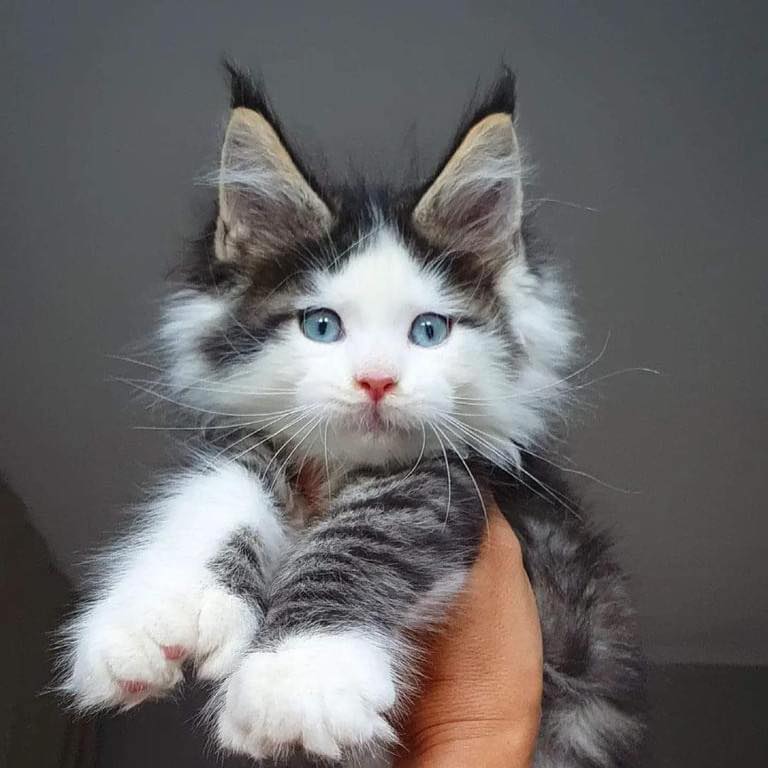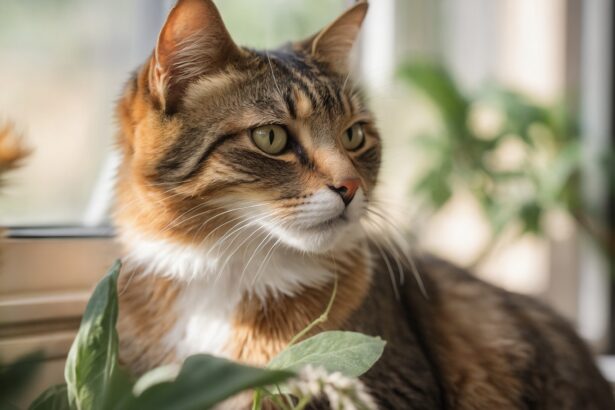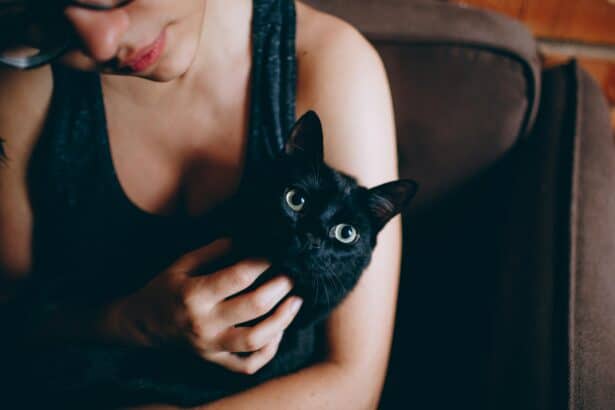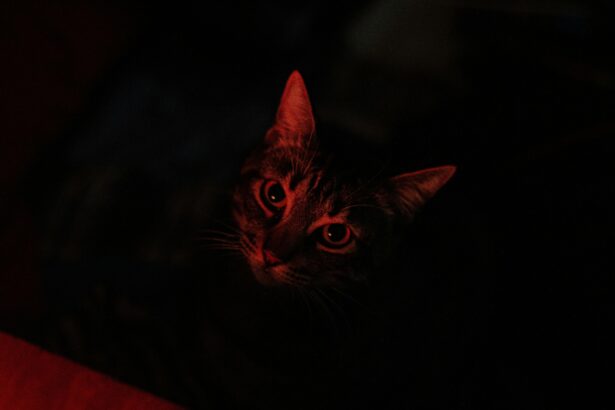Big cat, soft heart: the Maine Coon looks like a mini lynx but behaves like a lovable goofball. Want a cuddly, curious, easygoing roommate despite an athlete’s build? Here’s your friendly guide—no drama, all purrs.
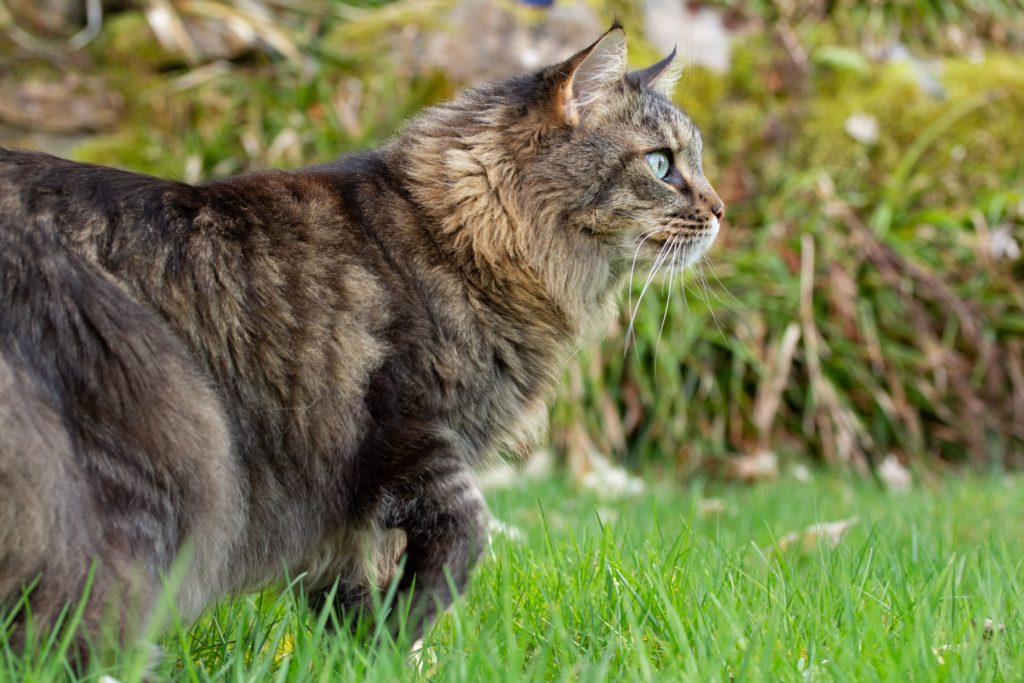
Maine Coon temperament
Impressive to look at, never intimidating to live with. The Maine Coon is sensitive, sociable, playful and wonderfully attached to “their” people.
You’ll hear gentle trills and chirps more often than classic meows. Chatty, yes—loud, rarely.
Size-wise, many approach a full meter from nose to tail tip, with adult weight often between 4–9 kg (9–20 lb). Females are usually more fine-boned.
Want everything in one place before adopting? Peek at our complete guide to care, play, and daily life with this gentle giant in our Maine Coon care guide.
Looks and charming quirks
That signature rectangle body, square muzzle, big tufted ears, generous ruff and boa-long tail… the look is unmistakable and oh-so-regal.
Oval eyes range from green to gold, sometimes copper. The coat is semi-long, plush and denser in winter, with a water-repellent feel.
Fun fact: some Maine Coons are polydactyl—six or even seven toes per paw—perfect “snow mittens” for harsh climates. Many also enjoy water more than the average cat. A bath is optional, but a paw in the sink? Don’t be surprised.

Origins and sweetly debunked myths
The Maine Coon hails from the U.S. state of Maine. It likely descends from hardy farm cats naturally selected for size, strength and resilience.
The raccoon cross legend? Adorable, but biologically impossible. The name most likely nods to that magnificent coat and tail reminiscent of a raccoon’s.
Love a good sea tale? Dive deeper into the breed’s roots and folklore in our origins feature.
Living well with a Maine Coon
Space and play
- Choose sturdy, high perches. This kitty loves to survey the room like a queen on a balcony.
- Short daily play sessions (feather wand, rolling ball tracks) keep that athletic body and curious mind satisfied.
- Opt for a large litter box and slightly elevated bowls for comfort.
Common mistake to avoid: a wobbly, lightweight cat tree. With their mass, it can tip, scare them and create a negative association with climbing. Pick a wide base, thick posts and XXL platforms. Unsure where to start? See our picks in this cat tree guide.
Practical tip: make a wall “cat highway” with shelves and leave 40–50 cm of clearance under the ceiling so your Coon can stretch like royalty—without crowding your living room.
Grooming and coat care
Brush two to three times a week off-season. During spring shed, switch to quick daily touch-ups to prevent knots and hairballs.
Start with a wide-tooth comb, finish with a soft brush. A barely damp microfiber glove before brushing lifts dead hair without tugging.
Baths aren’t mandatory unless introduced early. If you try, dry the ruff and tail thoroughly. For step-by-step techniques and tool ideas, explore our cat grooming guide.
Food and hydration
Big appetite, bigger need for quality. Prioritize high animal-protein recipes and portion to age and activity. Your vet can help you fine-tune calories as your kitten becomes a slow-maturing adult.
Glossy coats love essential fatty acids (Omega-3/6) and good hydration. A running water fountain often tempts them to sip more.
Pro tip: teach a gentle “up” cue onto a bath mat placed on a scale, once a month. Turn it into a 30-second treat game to monitor weight without stress.
Health: what to watch
Overall robust, many Maine Coons live 12–15 years, sometimes more with steady care. Partner with your vet, keep weight stable and play daily for healthy joints and hearts.
- Hypertrophic cardiomyopathy (HCM): ask breeders about screening; schedule regular vet checks.
- Hip dysplasia: manage weight, provide soft landings, and avoid repeated jumps from great heights.
- Spinal muscular atrophy (SMA): reputable catteries test breeding cats.
- Dental care: toothbrushing or approved dental chews help limit tartar.
Annual checkups, parasite prevention and quiet-but-daily activity form a golden routine for long, comfy years together.

Price and responsible adoption
From a serious cattery, a companion Maine Coon generally costs €800–€1,800. Price depends on lineage, color and health guarantees.
Look for well-socialized kittens, health-tested parents, a clear contract and caring aftercare. Transparency isn’t optional—it’s essential.
New to catteries and paperwork? Here’s how to spot the right place and ask smart questions: what a cattery is and how to choose one.
FAQ
Are Maine Coons good with kids and other pets?
Yes—most are patient, calm and social. Introduce gradually, set gentle rules for little hands, and allow slow, supervised meet-and-greets with resident pets.
Should I walk my Maine Coon on a harness?
Optional, but possible if you start early. Choose a secure H-harness and pick calm routes away from noisy roads and excitable dogs.
How often should I brush a Maine Coon?
Two to three times weekly, daily during shedding. Short, regular sessions are better than one long detangling marathon.
How do I prevent Maine Coon weight gain?
Measure portions, focus on high animal protein and build daily play. Reassess calories as your youngster finishes growing into a slow-maturing adult.


